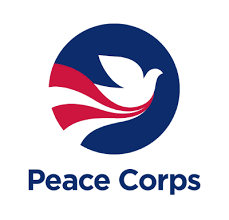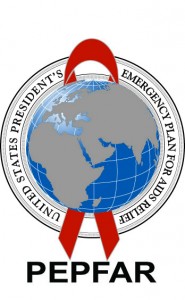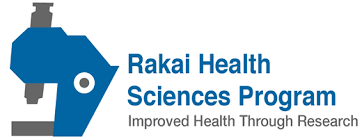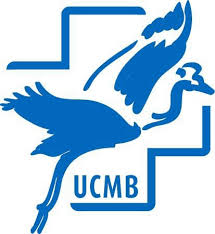Welcome to: Villa maria Hospital Home Care Program
is a world free of HIV/AIDS and a society responsive to the welfare of those infected and affected by HIV/AIDS.
is to provide holistic HIV/AIDS care services to foster socio-economic development among people infected and affected by HIV/AIDS living in the greater Masaka area in Uganda, East Africa.
Villa Maria Hospital Home Care Program empowers those infected and affected by HIV/AIDS to contribute to improving, maintaining and financing their health through an Antiretroviral Therapy Clinic (ART Clinic), Determined Resilient Empowered AIDS Free Mentored and Safe (DREAMS) Interventions and a Water Sanitation and Hygiene (WASH) project.
Villa Maria Hospital Home Care Program is the community arm of Villa Maria Hospital, a faith based founded hospital in rural Kalungu District, Uganda, East Africa, that was established at the peak of the HIV/AIDS pandemic in 1989 to help restore hope, dignity and quality of life of people infected and affected by HIV/AIDS.
“I started on ART in 2006 when I was so sick and I couldn’t even afford hospital bills. Villa Maria Hospital Home Care Program found me in my community and tested me which is how I found out I was HIV positive and from the investigations done I was eligible and initiated on ART. Since then, my life has not remained the same. Now, my health is good, I only go to the ART Clinic to pick up my drugs. I have managed to fend for my family and pay school fees for my children and my grandchildren.”
- Florence, Villa Maria Hospital Home Care Program ART Clinic client
“I was enrolled into DREAMS when I was pregnant. I didn’t know anything about antenatal until I joined DREAMS project. We were told to attend antenatal services at the health center. My peers in DREAMS told me they would go there every after three months. I had to go at the
facility because my pregnancy was 4 and half months. The people I found at the health center helped me very well. They also told me to go back whenever I felt unwell. This helped me to give birth to a healthy baby; I also take my baby for immunization as I was told by the health workers at the facility.”
- Viola, DREAMS group member







Backstory: In 1988 when founder of Villa Maria Hospital Home Care Program, Rev. Sr. Resitituta Nabiryo, was appointed Senior Nursing Officer of Villa Maria Hospital, AIDS was spreading like fire in dry grass. It was a very horrific experience for both the health professionals and patients together with their families. Almost every patient in Villa Maria Hospital suffered from HIV/AIDS, and 95% of those with AIDS died either in the hospital or immediately after discharge. The situation seemed hopeless. Villa Maria Hospital joined hands with the Government of Uganda, the Catholic church and other NGOs to make strong allies to work together towards controlling the epidemic. Villa Maria Hospital, with support from Catholic Relief Services, formed a small group of health workers lead by Rev. Sr. Resitituta Nabiryo under Villa Maria Hospital Home Care Program to work closely with villages leaders to provide HIV/AIDS education, testing, treatment and support to those who weren’t aware of the disease and didn’t know their status. From a donation to Uganda granted by the World Health Organization (WHO), Villa Maria Hospital Home Care Program distributed food, bedding and soap to hospital patients.
Villa Maria Hospital Home Care continues to work alongside local NGOs and U.S. government organizations to reach a global goal to end the HIV/AIDS pandemic including the PEPFAR 95-95-95 goal – 95% of people know their HIV status, 95% of people who are HIVpositive are adhering to their ART and 95% of people on ART have seen viral load suppression.
Since its conception in 1989, Villa Maria Hospital Home Care Program has remained rooted in values and community service to restore hope, dignity and quality of life of people infected and affected by HIV/AIDS. As a result, the program has grown with over 70 employees, working in villages and at a physical ART clinic located next to Villa Maria Hospital, empowering over 100,000 people across seven districts.
1987 Government of Uganda launched the AIDS control Program
1988 Villa Maria Hospital began conducting Community Based Health Care outreach for HIV positive people living in Kalungu district
1989 VMHHCP was founded as the community arm to Villa Mara Hospital
1990 HIV/AIDS pandemic had begun to visibly take a toll on Uganda’s population
2002 Introduction of monitoring and evaluation systems to record progress
2004 VMHHCP formed community groups in villages to educate entire communities at once to reach people
2005 VMHHCP began delivering ART to clients
2006 VMHHCP opened its ART Clinic
2010 VMHHCP introduced economic strengthening training to clients with Saving and Internal Lending Communities (SILC) model
2016 VMHHCP began implementing DREAMS interventions to help girls 10-24 maintain their negative HIV status in partnership with Mild May and CDC
2019 VMHHCP began implementing WASH project that promotes improvement of sanitation and hygiene in households to help prevent diseases in partnership with the Uganda Sanitation Health Activity (USHA) funded by USAID
Ichad Brown School presented an Appreciation Award to Villa Maria Hospital Home Care Program in recognition of its participation in the implementation of Suubi + Adherence study, 2012-2018.
Uganda Episcopal Conference (Uganda Catholic Medical Bureau) presented Villa Maria Hospital Home Care Program with a plaque in appreciation of its contribution towards the successful implementation of The AIDS CARE and TREATMENT (ACT) Project, 2012-2018.
Uganda Episcopal Conference (Uganda Catholic Medical Bureau) presented Villa Maria Hospital Home Care Program with the Meritorious Service Award in recognition of exceptional performance in best-differentiated care model in the AIDS CARE and TREATMENT (ACT) Project, 2012-2018.
Medical Access presented Villa Maria Hospital Home Care Program with the Gold Category Award in recognition for its outstanding performance in Logistics Management of HIV Commodities under the Procurement and Supply Chair Strengthening Project 2016-2017, with support from the President’s Emergency Plan for AIDS Relief (PEPFAR) Through US Centers for Disease Control and Prevention (CDC).
JMS Joint Medical Store recognizes Villa Maria Hospital Home Care Program as a committed customer, 2013.
Villa Maria Hospital Home Care Program strategically pursues its vision a world free of HIV/AIDS and a society responsive to the welfare of those infected and affected by HIV/AIDS and its mission to provide holistic HIV/AIDS care services to foster socio-economic development among people infected and affected by HIV/AIDS living in the greater Masaka area in Uganda, East Africa through three main projects:
The Villa Maria Hospital Home Care Program ART Clinic provides HIV+ people living in Kalungu and Bokumansimbi Districts with holistic at-home and in-clinic HIV services including:
The Villa Maria Hospital Home Care Program ART Clinic is funded by the President’s Emergency Plan for AIDS Relief (PEPFAR), and it is working towards reaching the PEPFAR 95-95-95 goal – 95% of people know their HIV status, 95% of people who are HIV + are adhering to their ART and 95% of people on ART have seen viral load suppression.
3,509 Clients on ART
Villa Maria Hospital Home Care Program ART Clinic is working toward meeting the UN Sustainable Development Goal of ending AIDS by 2030.
Villa Maria Hospital Home Care Program ART Clinic will use its expertise gained in the last 25 years to provide technical support in form of a consultancy arrangement at a fee to organizations which need to replicate our expertise to reach their goals.
“I started on ART in 2006 when I was so sick and I couldn’t even afford hospital bills. Villa Maria Hospital Home Care Program found me in my community and tested me which is how I found out I was HIV positive and from the investigations done I was eligible and initiated on ART. Since then, my life has not remained the same. Now, my health is good, I only go to the ART Clinic to pick up my drugs. I have managed to fend for my family and pay school fees for my children and my grandchildren.” - Florence, Villa Maria Hospital Home Care Program ART Clinic client
“I was identified HIV positive when I had visited the hospital for ANC services, I was counselled, tested HIV positive and initiated on ART, since then I have given birth to 3 kids who all have tested negative as I am adherent to drugs. I advise pregnant and lactating mothers to test for HIV and if found positive start ART and adhere to drugs if you to watch your kids grow healthy” - Damalie, Villa Maria Hospital Home Care Program ART Clinic client
Villa Maria Hospital Home Care Program is creating Determined, Resilient, Empowered, AIDS Free, Mentored and Safe (DREAMS) groups and implementing evidence based interventions to reduce rates of HIV, suppress HIV viral load and build financial independence among adolescent girls and young women aged 10-24 through the following services:
DREAMS Interventions in Central 2 region in Uganda is led by Rakai Health Sciences Program (RHSP), funded by PEPFAR through the Center for Disease Control and Prevention (CDC) with a goal of empowering young women and advancing gender equality.
The goal of the DREAMS program is to empower every girl in Gomba and Ssembabule to make decisions that keep them healthy and financially independent. Villa Maria Hospital Home Care Program intends to teach the same curriculums taught to girls enrolled in DREAMS groups to the organization’s 278 youth clients.
Villa Maria Hospital Home Care Program ART Clinic will use its expertise gained in the last 25 years to provide technical support in form of a consultancy arrangement at a fee to organizations which need to replicate our expertise to reach their goals.
“I was enrolled into DREAMS when I was pregnant. I didn’t know anything about antenatal until I joined DREAMS project. We were told to attend antenatal services at the health center. My peers in DREAMS told me they would go there every after three months. I had to go at the facility because my pregnancy was 4 and half months. The people I found at the health center helped me very well. They also told me to go back whenever I felt unwell. This helped me to give birth to a healthy baby; I also take my baby for immunization as I was told by the health workers at the facility.” - Viola, DREAMS group member
"My life changed when I joined DREAMS, after attending various packages of DREAMS, for example, Stepping Stones that moulded my life and changed my behaviour. The project helped me discover my HIV status, and it taught me how to save through SILC groups. I owe my own hair salon and can cater for my baby. I am proud of what I am because of the DREAMS. The project lifted me from nothing to something. I am no longer isolated as I used to be. I conclude by telling my fellow adolescents in the community to join the project to restore their lost hope.” - Maddu, DREAMS group member
Villa Maria Hospital Home Care Program received a grant from the Uganda Sanitation for Health Activity (USHA) to assist households in Lwengo and Kyotera Districts in improving hygiene and sanitation to prevent and control fecal to oral infections and diseases. The USHA project uses a Market Based Sanitation Implementation Approach (MBSIA) that aims at making the hygiene and sanitation improvements sustainable by empowering households to finance and maintain their own health upgrades.
The Uganda Sanitation for Health Activity (USHA) is financed by the United States Agency for International Development (USAID) with the goal of increasing access to basic sanitation by moving households from unimproved to improved toilets/latrines and promotion of positive WASH behavior in targeted communities and schools in in up to 25 districts in Uganda.
3,509 Clients on ART
By June 2020, one year from the start of the project, Villa Maria Hospital Home Care Program’s goal is to assist 7,780 households in Lwengo and Kyotera Districts gain access to basic sanitation including a permanent toilet structure with a washable floor, a handwashing station with soap and education on health benefits to drinking boiled water.